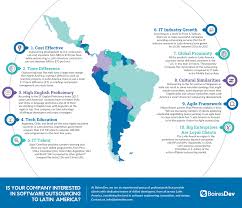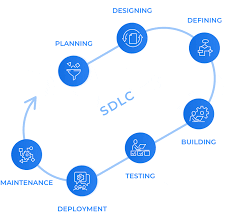Maximizing Efficiency: The Power of Outsourcing Development
The Benefits of Outsourcing Development
Outsourcing development has become a common practice for businesses looking to streamline their operations, reduce costs, and access specialized expertise. By partnering with external development teams, companies can leverage a wide range of benefits that contribute to their overall success.
Cost Efficiency
One of the primary reasons companies choose to outsource development is cost efficiency. Outsourcing allows businesses to access skilled developers at a fraction of the cost of hiring an in-house team. By outsourcing, companies can also save on overhead expenses such as office space, equipment, and employee benefits.
Access to Specialized Skills
Outsourcing development provides businesses with access to a diverse pool of talent and specialized skills. External development teams often have expertise in specific technologies or industries that may not be available internally. This allows companies to take on projects that require specialized knowledge without having to invest in training or hiring new employees.
Faster Time-to-Market
By outsourcing development, companies can accelerate their time-to-market for new products and services. External teams are typically more flexible and can scale resources quickly to meet project deadlines. This agility enables businesses to respond faster to market demands and gain a competitive edge.
Focus on Core Business Activities
Outsourcing development allows companies to focus on their core business activities while leaving technical aspects to external experts. By delegating development tasks, businesses can allocate more time and resources to strategic initiatives that drive growth and innovation.
Risk Mitigation
Outsourcing development can help mitigate risks associated with project delays, budget overruns, or technical challenges. External teams are experienced in managing complex projects and can provide valuable insights and recommendations to ensure successful project delivery.
Conclusion
In conclusion, outsourcing development offers numerous benefits for businesses seeking cost-effective solutions, access to specialized skills, faster time-to-market, focus on core activities, and risk mitigation. By partnering with external development teams, companies can drive efficiency, innovation, and growth in today’s competitive business landscape.
8 Essential Tips for Successfully Outsourcing Development Projects
- Clearly define your project requirements and objectives before outsourcing.
- Research and select a reputable outsourcing partner with relevant experience in your industry.
- Establish open and clear communication channels with the outsourcing team.
- Set realistic timelines and milestones to track progress effectively.
- Ensure that the outsourcing agreement includes confidentiality clauses to protect your intellectual property.
- Regularly review the work being done by the outsourced team to maintain quality standards.
- Provide detailed feedback to the outsourcing team to ensure alignment with your expectations.
- Consider cultural differences and time zone challenges when working with an offshore development team.
Clearly define your project requirements and objectives before outsourcing.
Before outsourcing development, it is essential to clearly define your project requirements and objectives. This step lays the foundation for a successful partnership with an external development team by ensuring that both parties are aligned on the project scope, deliverables, timeline, and expectations. By clearly outlining your needs upfront, you can minimize misunderstandings, reduce the risk of scope creep, and facilitate a smoother development process. Clarity in project requirements helps set clear goals and enables the outsourced team to deliver results that meet your specific needs effectively.
Research and select a reputable outsourcing partner with relevant experience in your industry.
When outsourcing development, it is crucial to conduct thorough research and carefully select a reputable partner with relevant experience in your industry. By choosing a trusted outsourcing partner who understands the intricacies of your specific sector, you can ensure that they have the necessary expertise to deliver high-quality solutions tailored to your business needs. Collaborating with an experienced outsourcing provider can streamline the development process, mitigate risks, and ultimately lead to successful project outcomes that align with your industry standards and objectives.
Establish open and clear communication channels with the outsourcing team.
Establishing open and clear communication channels with the outsourcing team is crucial for the success of any development project. By fostering transparent communication, both parties can ensure alignment on project goals, timelines, and expectations. Regular updates, feedback sessions, and status reports help maintain a collaborative environment and address any issues or challenges promptly. Clear communication also promotes trust and accountability, leading to improved efficiency and productivity throughout the development process.
Set realistic timelines and milestones to track progress effectively.
Setting realistic timelines and milestones is a crucial tip when outsourcing development. By establishing clear and achievable goals, businesses can track progress effectively and ensure that projects stay on schedule. Realistic timelines help manage expectations, prevent delays, and maintain momentum throughout the development process. Additionally, milestones provide checkpoints for assessing progress and making necessary adjustments to keep the project on track for successful completion. Overall, setting realistic timelines and milestones is essential for effective project management when outsourcing development.
Ensure that the outsourcing agreement includes confidentiality clauses to protect your intellectual property.
It is crucial to ensure that the outsourcing agreement includes confidentiality clauses to safeguard your intellectual property. By clearly defining and outlining confidentiality provisions in the contract, you can protect sensitive information, proprietary technologies, and valuable assets from unauthorized disclosure or misuse. These clauses establish a legal framework for maintaining the confidentiality of your intellectual property throughout the development process, giving you peace of mind and security in your outsourcing partnership.
Regularly review the work being done by the outsourced team to maintain quality standards.
To ensure the quality of outsourced development work, it is crucial to regularly review the progress and outputs of the external team. By closely monitoring their work, businesses can identify any potential issues early on and provide feedback to maintain high-quality standards throughout the project. Regular reviews also help foster clear communication between the outsourcing team and the company, ensuring that both parties are aligned on project goals and expectations.
Provide detailed feedback to the outsourcing team to ensure alignment with your expectations.
Providing detailed feedback to the outsourcing team is crucial to ensure alignment with your expectations. Clear and specific feedback helps the team understand your requirements, preferences, and any necessary adjustments. By communicating openly and transparently, you can establish a collaborative relationship that fosters mutual understanding and ultimately leads to the successful delivery of high-quality results.
Consider cultural differences and time zone challenges when working with an offshore development team.
When outsourcing development to an offshore team, it is crucial to consider cultural differences and time zone challenges. Understanding and respecting the cultural norms, communication styles, and working practices of the offshore team can help foster a positive working relationship and enhance collaboration. Additionally, being mindful of time zone disparities is essential for coordinating meetings, project updates, and resolving issues in a timely manner. By proactively addressing these factors, businesses can ensure effective communication and seamless cooperation with their offshore development team.








